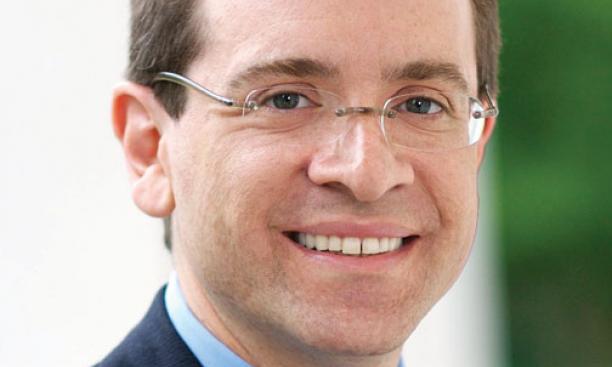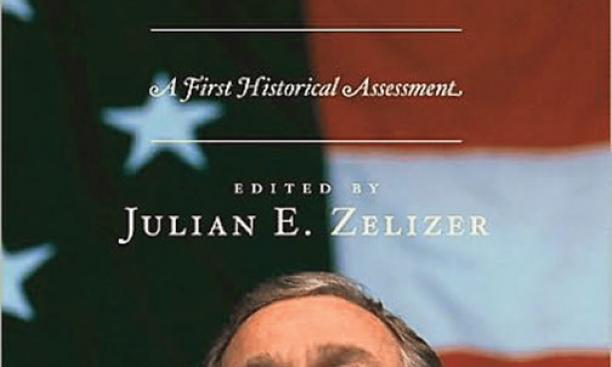



Former President George W. Bush was not “an accident or a lightweight,” but rather a politically savvy operator who put a substantial conservative agenda into place. That’s the view of history and public affairs professor Julian E. Zelizer, who has taken an early stab at putting the Bush presidency into historical context with his edited volume, The Presidency of George W. Bush: A First Historical Assessment. Published in October by Princeton University Press, the book includes essays by historians on Bush’s ideology, war on terrorism, and energy and economic policies.
“President Bush was a transformative president,” Zelizer said. “This is a president who has had a very big impact, and in some ways he set the terms of the debate that Obama has to work with.”
Bush isn’t the only president Zelizer has analyzed recently; he also wrote a biography of Jimmy Carter, published by Henry Holt in September. With both books, Zelizer challenges myths about presidents we think we know. He also wants readers to take the 1970s seriously, as the decade when the modern conservative movement that fueled George W. Bush’s presidency came into being.
In his biography of Carter, Zelizer writes that the former Georgia governor had a number of early successes, brokering the Camp David accords between Israel and Egypt, and making human rights a key part of U.S. foreign policy. But what made Carter a successful campaigner — his status as a Washington outsider — hampered him once he was in power. Unable to manipulate Congress or build the Democratic Party, Carter was powerless in the face of the Iran hostage crisis and the conservative Reagan revolution.
Two years into the Obama presidency, Zelizer said, the parallels between the two presidents are striking. Like Carter, he said, Obama has had run-ins with key Democrats, including House Speaker Nancy Pelosi, and Obama’s aloof personal style makes it hard for average Americans to connect with him.
“Obama keeps running against Washington even after he’s president,” said Zelizer, a regular contributor to Politico and CNN.com and an occasional contributor of opinion columns for The New York Times and other publications. This year Zelizer is a visiting scholar at the Russell Sage Foundation in New York City.
Part of Obama’s challenge is the fact that many Bush policies, especially in terms of national security, tax cuts, and offshore oil-drilling, have been surprisingly hard to dismantle, argues Zelizer, who with Princeton history professor Sean Wilentz taught a history seminar last year on the Bush presidency. Bush’s strong-arm policies were not an anomaly, Zelizer adds, but part of a conservative tradition that stretched back to Nixon and increasingly embraced the idea of presidential might.
Most of the essays in The Presidency of George W. Bush were drafted during Bush’s final year in office and then revised. But Zelizer isn’t worried about writing history too soon. Although e-mails and memos from the Bush White House eventually will change or complicate the story, Zelizer likes the idea of taking the first crack at the past.

History professor SEAN WILENTZ explores Bob Dylan’s life and work in Bob Dylan in America (Doubleday), which aims to situate the artist in American musical, cultural, and literary contexts. ... In his 11th collection of poems, Maggot (Farrar, Straus & Giroux), PAUL MULDOON, a professor of creative writing and poetry editor of The New Yorker, writes about coming to terms with the early 21st century, repeatedly turning to the subjects of sex and death. ... In Sourland: Stories (Ecco), author JOYCE CAROL OATES, professor of creative writing, examines loss, bereavement, and violence in this collection of 16 stories. ... STEPHEN F. COHEN, a professor of politics emeritus at Princeton and a professor at New York University, knew personally many of the victim-survivors he writes about in The Victims Return: Survivors of the Gulag After Stalin (Publishing Works) — the stories of survivors of Joseph Stalin’s prisons and forced-labor camps. Cohen writes about their liberation and return to Soviet society. ... In Brokered Boundaries: Creating Immigrant Identity in Anti-Immigrant Times (Russell Sage Foundation), DOUGLAS S. MASSEY *78, a professor of sociology and public affairs, and MAGALY SÁNCHEZ R., a senior researcher and visiting scholar at the Office of Population Research, untangle the political, social, and economic conditions underlying the rise of xenophobia in U.S. society. ... In 2001 KENNETH S. DEFFEYES *59, an emeritus professor of geology, predicted that world oil production would peak and begin to decline in 2005. In When Oil Peaked (Hill and Wang), he revisits that prediction, and argues why his case is even stronger today.
